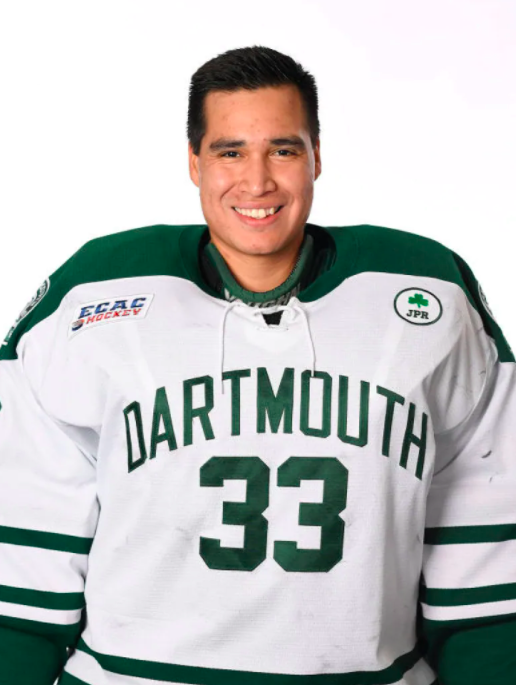Devin Buffalo awarded University of Alberta’s first Scotiabank Program for Law Students scholarship
Helen Metella - 2 September 2021

Devin Buffalo, the University of Alberta’s first recipient of the Scotiabank Program for Law Students scholarship, has long been inspiring Indigenous youth as a professional hockey player, a motivational speaker and entrepreneur.
Scotiabank established the scholarship this year at six Canadian law schools with the intent of increasing the number of future lawyers who are tackling issues of systemic discriimination and building momentum for positive change.
Buffalo, 28, began his quest to do all of the above as a teenager. A member of the Samson Cree Nation, he was born in Maskwacis and grew up in Wetaskiwin, where he navigated both weak jokes and overt racism about his Indigenous heritage. In response, he “made it a mission to flip the stereotypes and prove that we could do anything we wanted to do,” he said.
“At the time, it was about making the NHL and going to Harvard.”
Buffalo not only attained top grades in high school, he persevered as a goalie in bantam and midget hockey even though “I was never the best player on the team.”
Positions with the Drumheller Dragons of the Alberta Junior Hockey League and the Flin Flon Bombers of Saskatchewan’s Junior Hockey League led to a scholarship to Dartmouth College. By attending an Ivy League university he triumphed over early discouragement from a guidance counsellor who had told him it was an unrealistic idea.
At Dartmouth, Buffalo earned a degree in political science while, at first, warming the bench as the team’s third goalie. In his third year, he played every game and was nominated for the Hobey Baker Memorial Award for the top men’s hockey player in the National Collegiate Athletic Association.
He was also nominated for the NCAA Hockey Humanitarian Award for his volunteer work with Indigenous sporting events that included the World Indigenous Games, the North American Indigenous Games and the Alberta Indigenous Games.
Waniska Athletics
During the 2018 - 2019 season, Buffalo played professionally for five teams in the East Coast Hockey League and American Hockey League, including the Edmonton Oilers’ Wichita farm team. Injuries from a car accident ended his dream of playing in the NHL, so he returned to Alberta to pursue other goals. One was to start Waniska Athletics, named for a Cree word that means “wake up and rise.” Since 2020, Waniska has delivered two hockey camps and 12 virtual school tours at which Buffalo has given inspirational talks to Indigenous youth.
“With my background in hockey I was able to see what athletics could do for youth, the doors it could open, the dreams they could achieve,” he said. “A byproduct of colonization is that Indigenous people sometimes are not encouraged to dream. Our dreams are put in a box and limited. Waniska encourages all of us to support each other’s dreams, no matter how big they are.”
At the same time, he wrote the Law School Admission Test. With his mother a former school principal, his father a former band councillor, and two close relatives who are lawyers, Buffalo has always had an interest in treaty rights, governance and the law. Since his mother is a U of A alumna who instilled her respect for the university in him, he turned down a scholarship to another law school and accepted an offer from the University of Alberta Faculty of Law even before he was aware of the Scotiabank opportunity.
The $30,000 scholarship will run through Buffalo’s three years of law school. Two other students who have demonstrated their commitment to supporting marginalized or disadvantaged groups will also be selected to receive the scholarship in the next two years.
Despite starting law school in September, Buffalo intends to continue working with Waniska, which has branched out modestly into producing branded apparel intended to foster pride among Indigneous youth. He also intends to continue volunteering for community boards and committees to promote anti-racism from within.
“I learned quickly that representation matters,” he said. “If there’s no diversity on boards then these issues aren’t discussed. But if you have a whole board filled with people from different areas then it doesn’t get overlooked.”